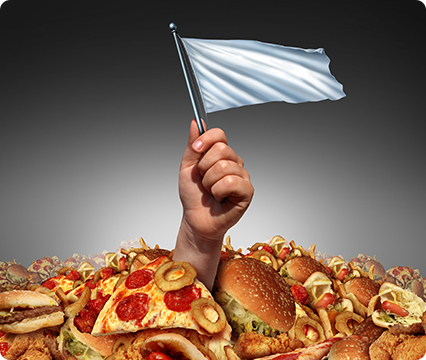The influence of taste liking on the consumption of nutrient rich and nutrient poor foods


The CNP Diet, Craving, and Food Addiction Research Category explores the psychological, neurobiological, and behavioral interrelations underlying cravings, compulsive overeating, and consumption of highly palatable or ultra-processed foods, highlighting a bidirectional relationship between eating behaviors and dietary intake patterns. Join the CNP Library Membership to learn more.

This 2018 review presents the multifactorial social, neurobehavioral, and metabolic determinants of food intake that influence obesity risk to promote food craving and excessive food intake. The determinants included rewarding foods that stimulate brain reward motivation and stress circuits to influence eating behaviors, as well as stress hormones that hijack the brain’s emotional (limbic) and motivational (striatal) pathways. Sinha (2018) discusses the impact of high-stress levels and trauma, in addition to metabolic alterations such as higher weight, and altered insulin sensitivity, on self-control processes that regulate emotional, motivational, and visceral homeostatic mechanisms of food intake and obesity risk. Also reviewed was the potentially positive interaction between dynamic effects of neurobehavioral adaptations in metabolic, motivation, and stress neurobiology with food craving, excessive food intake, and weight gain. The author highlights key areas that require future investigation to adequately comprehend and address this growing obesity epidemic.
The influence of taste liking on the consumption of nutrient rich and nutrient poor foods
Gut microbiota signatures of vulnerability to food addiction in mice and humans
A commentary on the “eating addiction” versus “food addiction” perspectives on addictive-like food consumption
Underwhelming pleasures: Toward a self-regulatory account of hedonic compensation and overconsumption
CNP Research Summary can be found in the CNP Library Membership
Loneliness and cravings for sugar‐sweetened beverages among adolescents
Inhibition of food craving is a metabolically active process in the brain in obese men
Unwrapped: Readiness-to-eat in food images affects cravings
CNP Research Summary can be found in the CNP Library Membership
Emotions and food consumption: Emotional eating behavior in a European population.
CNP Research Summary can be found in the CNP Library Membership
Separate gut-brain circuits for fat and sugar reinforcement combine to promote overeating.